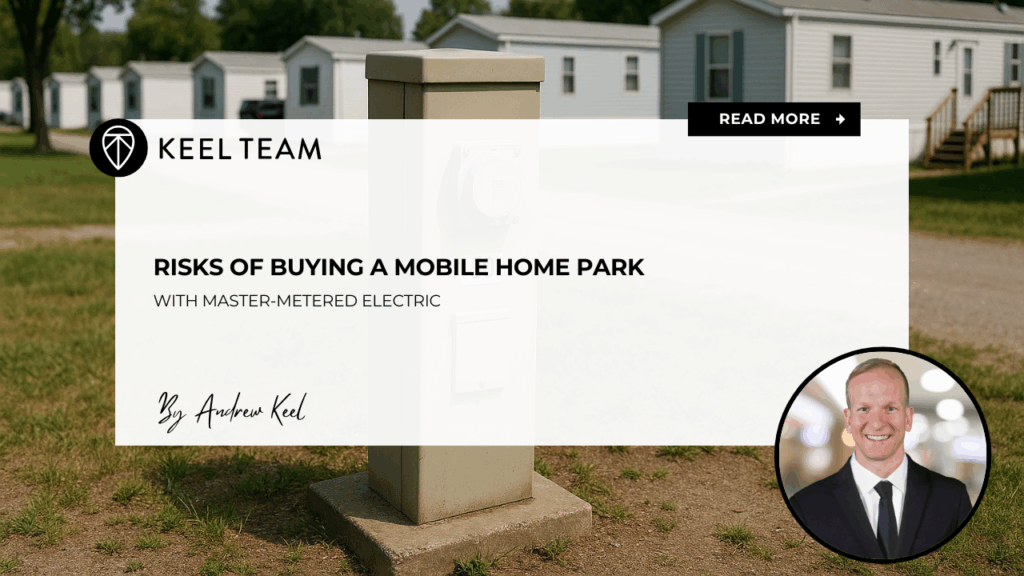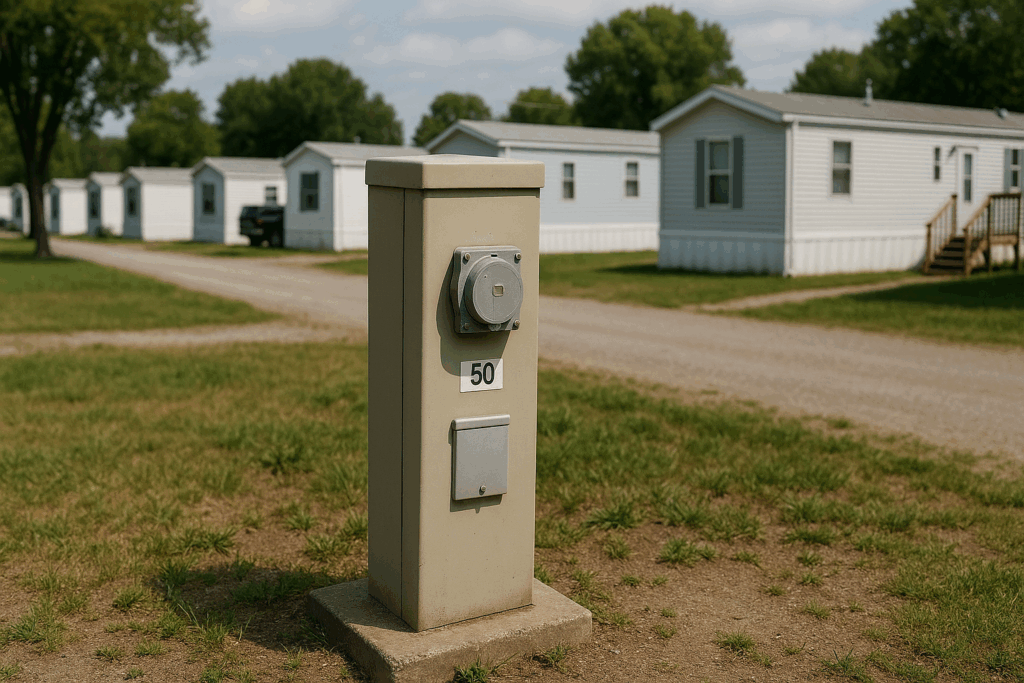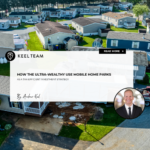Risks of Buying a Mobile Home Park with Mastered-Metered Electric
-
 Andrew Keel
Andrew Keel

Master-metered electricity in a mobile home park can look simple and even profitable (since you can recover usage costs and sometimes mark up the electric), but they typically carry a number of hidden risks, liabilities, and maintenance landmines that can bite you later. Let’s break this down clearly:
What “Master-Metered” Electric Means
You — the mobile home park owner — receive one single electric bill from the utility company for the entire trailer park. You then submeter each tenant’s lot to bill them individually for their usage. So you’re effectively acting as a middleman utility provider — and that’s where the pitfalls come in.
1. Liability & Legal Concerns
Utility Reseller Laws
- Many states restrict or regulate how landlords can resell electricity.
You may need:
- A public utility commission exemption or registration.
- Transparent billing rules (no markups, no admin fees in some states).
- Disclosure requirements to tenants.
- A public utility commission exemption or registration.
- If you violate these, tenants can file complaints or lawsuits — or regulators can fine you.
Tip: Check your state’s Public Utility Commission (PUC) rules on “resale of electricity” or “submetering” in manufactured housing communities. For example, California, Texas, and Florida all have strict guidelines.
Download our FREE eBook on the Top 20 things to know BEFORE investing in mobile home parks!
Injury or Fire Liability
Since you technically own and control the electrical distribution system:
- If faulty wiring, underground electrical faults, or meter socket fires cause injury or property damage, you’re on the hook — not the utility company.
- Many older mobile home parks (especially pre-1980s) have undersized wiring, aluminum conductors, or no grounding, which can be fire hazards.
Worst-case: a tenant gets shocked, a home burns down, and the investigation traces it back to faulty park-owned wiring. Your insurance gets hit, and possibly you personally if negligence is proven.
2. Operational Pitfalls
Billing Disputes
- Tenants may challenge submeter readings or accuse you of overcharging.
- If you don’t have calibrated, certified submeters, or if you’re off even a little, that creates mistrust and potential legal exposure.
Meter Maintenance
- Submeters eventually fail or get tampered with.
- You’re responsible for testing, maintaining, and replacing them — not the utility.
- Old systems (especially analog ones) are hard to source parts for.
System Age & Condition
- If the trailer park’s electrical infrastructure is old (common in 1960s–80s mobile home parks), it might be overloaded by today’s standards.
- Many homes now run A/Cs, space heaters, and high-demand appliances.
- A 50-amp pedestal may be insufficient and can cause breakers to trip or wires to overheat.
- Many homes now run A/Cs, space heaters, and high-demand appliances.
3. Financial & Transactional Risks
Hidden CapEx
- Underground wire replacement can easily run $1,000–$2,000 per lot (or more if it’s conduit replacement).
- Transformer upgrades are five-figure projects.
- If a buyer’s inspection later finds outdated wiring, it can crush your resale value or require escrow holdbacks.
Insurance Costs
- Some insurers will exclude or surcharge coverage for master-metered trailer parks due to increased electrical liability.
- Others require annual infrared testing or certified electrician inspections to maintain coverage.

Electric Pedestal in a Mobile Home Park
Worst-Case Scenarios
Here’s what a few “nightmare” situations can look like:
- Tenant electrocution due to deteriorated neutral or ground.
- Fire from overloaded pedestal wiring → lawsuit & code enforcement.
- State PUC fines you for illegal resale or overbilling.
- Entire mobile home park rewire mandated after failed inspection.
- Sale delayed or canceled because the buyer’s lender won’t finance a master-metered mobile home park without a compliance report.
Safer Playbook
If you still want the deal (and many do, if the numbers work), here’s how to mitigate risk:
- Hire a licensed electrical engineer or contractor to perform a full load and safety audit of the system before closing.
- Verify submeter legality with your state PUC or manufactured housing division.
- Ensure billing transparency — charge tenants exactly what the utility charges you per kWh.
- Upgrade wiring or pedestals as part of your capex plan — modern systems with copper wire, ground wires and GFCI protection are safer and help resale.
- Check insurance early — confirm that your carrier understands you’re master-metered.
- Keep good records of submeter readings and calibrations.
Conclusion
Master-metered setups can look appealing on paper, but they often come with more risk than reward. Between potential legal exposure, infrastructure liabilities, and buyer hesitancy on resale, what seems like an efficient system can quickly become a costly headache. Unless the electrical network is modern, compliant, and properly insured, it’s usually wiser to stick with direct-utility billing whenever possible.
Are you looking for MORE information? Book a 1-on-1 consultation with Andrew Keel to discuss:
- A mobile home park deal review
- Due diligence questions
- How to raise capital from investors
- Mistakes to avoid, and more!
Disclaimer:
The information provided is for informational purposes only and is not investment advice or a guarantee of any kind. We do not guarantee profitability. Make investment decisions based on your research and consult registered financial and legal professionals. We are not registered financial or legal professionals and do not provide personalized investment recommendations.
Andrew Keel
View The Previous or Next Post
Subscribe Below 👇




